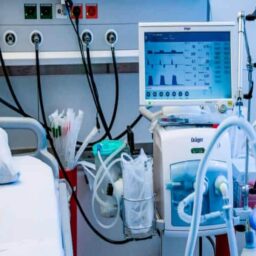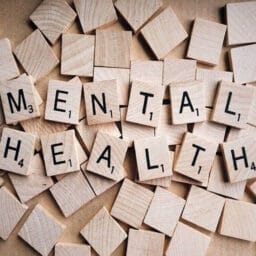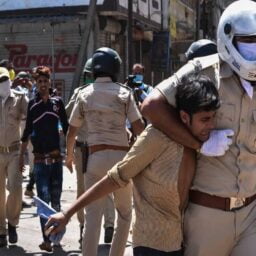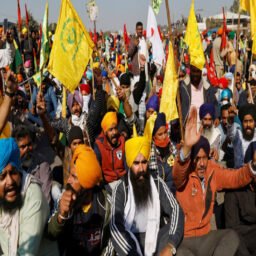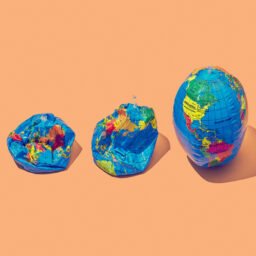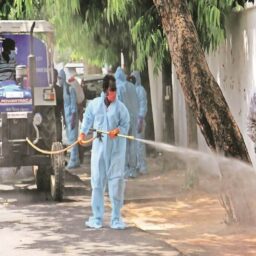
COVID-19 has acted as a destabilizing agent for many nations and their citizens. But what gets sidelined during this crucial time in the history of the world is the plight of those who have no State to fall back on- the Stateless, refugees, internally displaced persons, and asylum seekers, the ones who are the most vulnerable in such situations. In times as such, who are the ones who’ll come up for their assistance? And whether they do so out of charity or charter, matters. This is because in the former case, the funding would have chances of being cut at any time, and in the latter, there is an obligation on the host State.
The pandemic has undoubtedly caused free falling of the global economy, affecting the globalized nations and putting all the more pressure on the refugee holding States. According to UNHCR, which is the UN Refugee Agency, of the 196 countries affected by COVID-19 globally, 79 are refugee-hosting countries reporting local transmission. What makes matters worse is if the States hosting refugees are developing or under-developed nations. Because these nations are already struggling to provide fully and equitably to all its members, and having refugees on hold would lead to economic repercussion and unhealthy prioritization. Yet Stateless are the most vulnerable in the ongoing pandemic having to constantly rely on somebody for their survival. From their journey’s beginning to ultimate refugee ‘hotspots’, the threat of overcrowded settlements and lack of resources lingers, and survival does not come easy.
Water is the most basic commodity which is needed for survival, especially during the pandemic. Soap and water together are more reliable while fighting coronavirus as opposed to hand sanitizers, since it also removes any dirt from hands and other surfaces which may potentially hide any virus. Also, soap and water are economical, but places that have scarce resources of water or contaminated water create a formidable challenge in this reliability. Researchers are still finding methods of providing clean water for cleaning purposes, one of them is such as using salt, water, and car batteries to produce chlorinated water which is safe for washing.
A proper drainage system also proves to be crucial in refugee settlements. For example, wastewater from Syrian settlements in Lebanon is discharged untreated either into the neighboring watercourses or into septic tanks within the settlements. This has raised an alarm in water quality since 150,000 refugees are living in informal settlements in the Bekaa Valley, Lebanon. When municipality water is not available, they use well water which is suspected of contamination by sewer water. And as if that already does not pose a threat to health and immunity, to make matters worse, it has been shown that Covid 19 has the capabilities of replicating in the gastrointestinal tract and to be shed in faecal matter even for a prolonged period of time. The sharing of toilets, shower rooms, and many other closed places also pose an opportunity for easy transmission of the virus.
Covid related problems pose immense complications during the maternity period and delivery. There need to be resources ready for the protection of the mother and child, as well as spaces that are safe for women-specific conditions in life, such as menstruation. Therefore, response to the refugees during the pandemic requires a gendered perspective to mitigate the adverse impact on female refugees.
Challenges to the protection of refugees during emergencies such as the COVID-19 pandemic are different for different categories of refugees. Refugees, in terms of where they are, can be classified into three- those who are en route towards their destination, those who have been received in host States, and then those who are out in the urban arena. In the first instance, taking the example of those crossing the Mediterranean Sea, search and rescue operations in the central Mediterranean which has the highest number of on route deaths since 2015, which is more than 16000, have been suspended due to logistical difficulties caused by COVID-19. Whilst the pace of arrivals has decreased, refugees continue to arrive in Bangladesh even during the COVID-19 pandemic as 396 Rohingyas were rescued from the Teknaf coast by the Bangladeshi coast guards and kept in quarantine.
In the second instance, the process of receiving refugees becomes problematic due to overcrowding. In early 2020 the Reception and Identification Centre of Moria (RICM) held about 20,000 people whereas its holding facilities had been designed for fewer than 3,000 people. The site inside the walls which is a former military garrison has containers mostly for 8–12 asylum seekers, had been packed for some years already. It is very difficult to maintain social distancing in such living conditions. Bangladesh, for example, hosts almost 1 million Rohingya refugees from Myanmar, over 600,000 of whom are concentrated in the Kutupalong-Balukhali Expansion Site of Cox Bazar. The venue consists of 23 settlements and has a population density approaching 50000 people per km.
Regarding the third instance, there are approximately 26 million refugees in the world and roughly a third live in camps, the rest scattered within urban areas. Those who are in the urban setting often work informal labor market as said by Ann Burton, chief of the Public Health Section at the UNHCR, with daily wage earnings. These people are severely affected by the lockdown recognized by different nations. And even more so when they are called on suddenly with no prior information to give them a chance for arrangements as it happened in India. Although the case in India was seen as an internal migrant crisis, the effects would be the same for the refugees in the sector. In India, it was reported in The Wire on May 1, 2020, that the government assistance which was provided to the migrant laborer did not include the Rohingya refugees living in Delhi as they were seen as ‘illegal migrants.’ For this particular category of refugees, it may possible to avoid the overcrowding conditions of refugee camps and follow social distancing but they are left with no assistance, and their resources running out due to an indefinite period of lockdowns.
There are some toxic narratives against refugees and the stateless which need to be shut by showing solidarity in times of pandemic and beyond. Toxic narratives against refugees and the stateless create a stigma that is weaponized by countries to flee from their obligation. This narrative becomes a scapegoat where they outwardly deny the influx of refugees and even opt for refoulement. This violates the entire position of non-refoulment which is the customary principle of international law, which is followed by even those nations who were not parties to the Convention Relating to the Status of Refugees of 1951 or 1967 Protocol Relating to the Status of Refugees. Persons who do not legally have refugee status or are under the process cannot be expelled from the host country, for they are still protected by the principle of non-refoulment.
The general public of the countries is not endangered by the spread of the virus from the refugees because refugee settlements are kept out of contact from the general public due to fear of permanent residence, etc. And those who are working outside the refugee camps are already part of the public and they are just as open to contracting the virus from somebody as any non-refugee. The reality is that refugees had been coming from countries less severely affected by Covid to one more severely affected and they are less probable of carrying it.
How international organizations and private bodies can show support. Using the time which has been saved as a by-product of the lockdown imposed by Governments or by oneself, individuals can raise help and create awareness through the internet, especially social media. There can be fundraisers organized through virtual concerts, viewership based videos, selling items which can be taken up by common people and even celebrities to relieve the problems of resources and assistance to the refugees. Governments, NGOs, individuals can financially encourage Companies for mass production of Covid test kits. Donating sanitizers, masks, especially ventilators which are hardly available in refugee settlements.
When the Dzaleka refugees and their local Malawians started making face masks on a large scale and donating them to UNHCR to protect refugees, people realized that the local, refugee-led organization was making a contribution that could not be ignored. He also said that when organizations like UNHCR are flexible in their procurement policies, it gives a productive chance to the local companies situated in the host company. That way, procurement of needs is faster and would not require waiting on Western donations. Installing refugee run vegetative gardens will give a hand in producing food and keep them busy and self-sufficient. This reduces the cost even if by little. And most importantly is immediate during times of crisis.
Author(s) Name: Kriti Ramudamu (Amity University, Kolkata)




